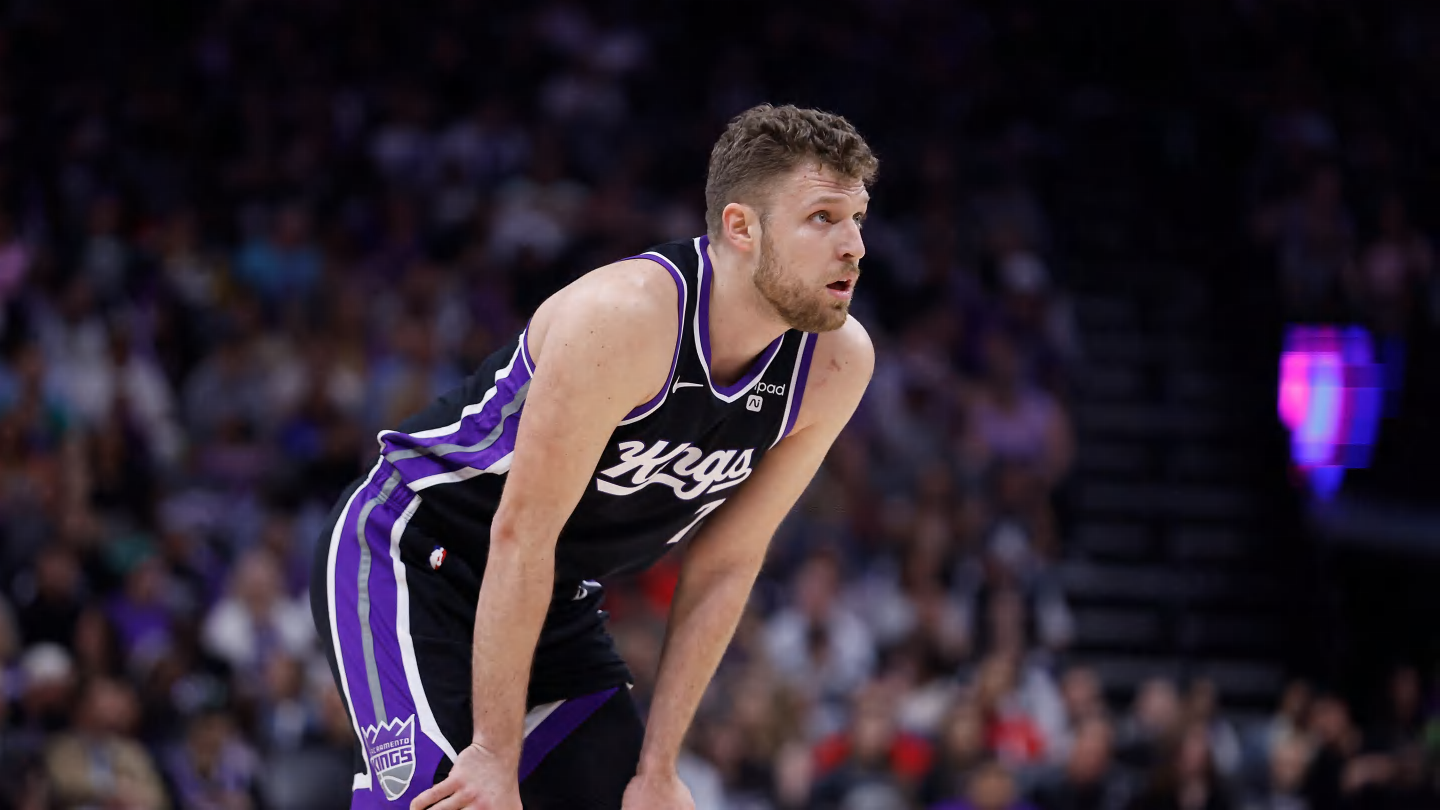Sports
Why new Toronto forward wants to leave and why the Raptors can’t let him go

It may come down to an old-fashioned standoff.
One of the most bizarre pieces of NBA news came out this week in the aftermath of the Toronto Raptors trading for Sacramento Kings forward Sasha Vezenkov. After a disappointing rookie season, it wasn’t the most surprising thing to see the Kings move off of his money in a salary-clearing deal with the Raptors.
It also wouldn’t be surprising to learn that Vezenkov didn’t enjoy his rookie year in Sacramento and want a fresh start somewhere else. What would be surprising, however, is that he doesn’t want that fresh start to happen on this continent. In essence, Vezenkov doesn’t want to play – not for the Raptors, and not for any NBA team.
It has been reported that Sasha Vezenkov and Greek powerhouse Olympiakos have agreed in principle on “a rich multi-year contract” for the forward to return to Europe this season. That wouldn’t be remarkable – players return to Europe all the time – except for the fact that Vezenkov is under contract for two more seasons to play in the NBA.
Vezenkov was one of the better players in Europe over the past few years, including winning back-to-back MVPs with Olympiakos in 2022 and 2023 before winning EuroLeague MVP in 2023. His decision to come over to the NBA and join the Kings was viewed as a great move for both parties.
Vezenkov’s rookie season was plagued by an ankle injury and the poor defensive ecosystem around him; his offensive scoring and cutting was offset by his terrible defensive fit next to Domantas Sabonis and head coach Mike Brown accordingly limited his minutes. He averaged just 12.2 minutes per game in 42 appearances.
Many players have a poor start to their NBA careers, especially European stars adjusting to a new league. Add in multiple ankle injuries, and there was no reason to think Vezenkov couldn’t bounce back and become a valuable NBA rotation player.
Instead, Vezenkov seems disillusioned with playing in the NBA entirely and wants to return to Europe. Perhaps that’s merely driven by his experience playing, perhaps it is related to living so far from his home country of Bulgaria, perhaps some combination of many factors.
The problem Vezenkov now faces, however, is that he cannot simply walk away and sign in Europe. He is not a free agent, and that applies both to his NBA contract and his ability to sign in Europe. Just as NBA teams often have to “buy out” a player’s contract in Europe to being them to the NBA, so too would Vezenkov have to get out of his contract here to be free to play for Olympiakos.
Unfortunately for Vezenkov, the Toronto Raptors don’t appear willing to just let him go.
For starters, Vezenkov is under contract this season for $6.6 million, with a team option for $6.9 million next season. The Raptors have no reason to merely waive him and have that money stuck on their books.
In addition, the Raptors need Vezenkov. They significantly upgraded their backcourt depth but are relatively thin on the forward line. RJ Barrett is likely to start slightly out of position at small forward next to Scottie Barnes, but behind them are largely wings and bigs who will need to slide up or down to fill in the rest of the minutes. Sasha Vezenkov is the only true small forward on the roster.
His skillset is also very intriguing to fit on a team with multiple playmakers in Barnes, Barrett and Immanuel Quickley. He is a savvy cutter and has a smooth jumpshot, and his off-ball movement would likely allow him to thrive with the Raptors and in Darko Rajakovic’s system. Defensively, the Raptors have the rim protection the Kings did not to insulate Vezenkov.
It is very reasonable for the Raptors to think they have a player who could develop in their system and be a long-term rotation player for them, someone they could look to re-sign in two years. That plan goes up in smoke if they can’t convince Vezenkov to stay in the NBA and honor his contract.
It’s possible that Vezenkov simply never shows up and tries to force Toronto to release him, but that’s extremely unlikely given that eventually his contract will just roll over and he won’t reach free agency any faster.
The other option is a contract buyout, and that may be the most likely outcome at this point. Vezenkov agrees to give up most or all of his 2024-25 salary, the Raptors decline the team option and waive him. In addition to almost certainly being a pay cut for Vezenkov to join Olympikos instead, he would also run the risk of another team claiming him off of waivers and trying to force him to play.
Toronto wants Vezenkov, and to some extent they really need him. The negotiations between the two sides could get uncomfortable as each tries to find leverage, Vezenkov to get out of his contract and Toronto to convince him to stay. In the end, the Raptors have the final say, and they can force Vezenkov to show up.
If they can do that and show him a better NBA experience, perhaps he and the Raptors can have a long and successful relationship. If not, something will have to give for this situation to be resolved.
Next. 2025 Mock Draft 1.0: Why Raptors must tank this season. 2025 Mock Draft 1.0: Why Raptors must tank this season. dark


)






